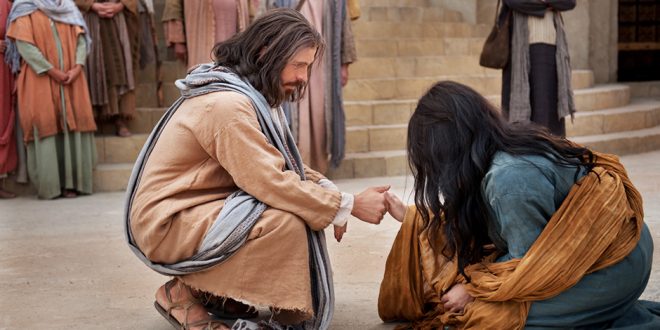
In the eighth chapter of the Gospel of John, we read of a woman caught
in sin. The religious authorities bring her to Jesus to judge her. He does
challenge her, but first he acts as her advocate. Hugh Halter in The Tangible
Kingdom (p.45), has this to say about the passage:
in sin. The religious authorities bring her to Jesus to judge her. He does
challenge her, but first he acts as her advocate. Hugh Halter in The Tangible
Kingdom (p.45), has this to say about the passage:
”The powerful revelation is that the God
of the universe – the only one who should have genuinely been offended, who
could have postured himself as judge and executioner – literally lowers himself
to her level and becomes her only friend, protector, and advocate. Yes, he does
challenge her lifestyle and asks her to stop, but not until he has postured
himself as an advocate. This is key. He addresses her head only after he has
her heart.”
of the universe – the only one who should have genuinely been offended, who
could have postured himself as judge and executioner – literally lowers himself
to her level and becomes her only friend, protector, and advocate. Yes, he does
challenge her lifestyle and asks her to stop, but not until he has postured
himself as an advocate. This is key. He addresses her head only after he has
her heart.”
In the passage, Jesus stoops down and writes something in
the sand, literally stooping to her level. Here we see modelled for us the
posture we are to take with others. Here is the posture we take with First
Nations groups that have been treated deplorably by ourselves or our family;
here is the posture we take with those who are discriminated against because of
their sexual orientation. The first posture is advocacy and care for them. Only
then can we point them to Jesus for him to challenge them, remembering all the while that Jesus is also challenging us in how he wants us to live our lives.
the sand, literally stooping to her level. Here we see modelled for us the
posture we are to take with others. Here is the posture we take with First
Nations groups that have been treated deplorably by ourselves or our family;
here is the posture we take with those who are discriminated against because of
their sexual orientation. The first posture is advocacy and care for them. Only
then can we point them to Jesus for him to challenge them, remembering all the while that Jesus is also challenging us in how he wants us to live our lives.